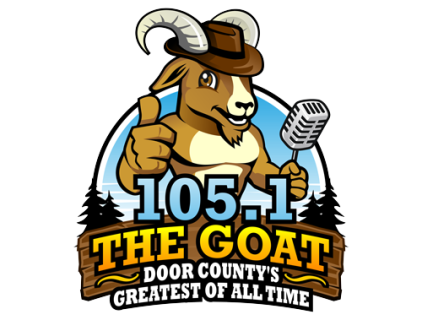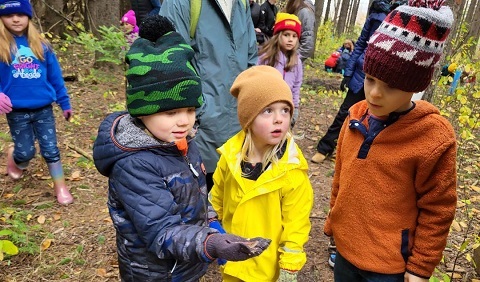While regularly scheduled classes and activities are taking place at Crossroads this week, it almost seems like a pause. We are done with the frenzy of the growing season and not quite into the holidays. The lyrics of a Thanksgiving hymn comes to mind: “All is safely gathered in, ‘ere the winter storms begin.”
Nick, our Land and Facilities Manager, has safely gathered in (and serviced) the restoration equipment. And “ ‘ere the winter storms begin,” he’s got the plows on the trucks and the grooming equipment ready.
A young member of our Junior Nature Club, a regular visitor at Crossroads, was disappointed last week that the chipmunks were not raiding the bird feeders as they sometimes do.
He and most people would be surprised to learn that in summer, chipmunks eat insects, slugs, bird eggs, and earthworms. But they need seeds and nuts to survive the winter, and those are already “safely gathered in.”
As overwhelming as winterizing and holiday preparations may be for humans, they pale in comparison to the incessant labor chipmunks perform in readying their burrows for winter.
Chipmunk burrows are elaborate lodgings, complete with sleeping areas, mazes of tunnels, and a special room for when "nature calls." One couldn't call it a bathroom – no bath. And it's not an outhouse, because it's inside. An underhouse? Scientists call it a latrine.
The sleeping room, dug well below the frost line, is lined with crumpled or shredded leaves. The nest area is connected by tunnels to several storage rooms.
Chipmunks spend most of summer and all of autumn compulsively harvesting food. Each petite striped creature stores approximately eight pounds of nuts and seeds in the underground storerooms. And that means countless trips from food source to burrow because chippies carry their winter food in their expandable cheek pouches.
To be honest (and chipmunks aren't, at least by human standards), they spend a great deal of time stealing food from each other. They probably assume that the Crossroads feeders are the well-stocked cache of another chipmunk.
When cold weather finally arrives, chipmunks seal up the entrances to their burrows, curl up, and go to sleep. They do not hibernate; they are too skinny. Seriously, chipmunks do not build up enough body fat to survive the winter.
Instead, they sleep for several days, and then wake up. Before they drift back to sleep (well, it's deeper than what we think of as sleep ... a torpor), chipmunks gobble down a substantial snack and use their latrine.
They have gathered in enough food to last until spring and probably beyond. Many chipmunks won't survive the winter. Scientists don't know why, but some fall into a sleep so profound that they fail to wake up. Enough survive, however, that we will have plenty of chipmunks above ground next year.
Unlike the hibernating native bees which have safely gathered and stored pollen in underground nests or in the stalks of dead plants, European Honeybees also spend the summer “gathering in,” collecting and processing nectar, then storing the honey to sustain them during the winter.
The Door County Beekeepers are careful to leave enough honey or supplemental food to maintain the hives, but they collect some of the honey and wax, for these have countless uses.
One use of honey is to make a fermented beverage called mead. The Beekeepers group will turn the Lab at the Collins Learning Center into a mead-tasting party for their November meeting, “Mead Making, Tasting and Pairing.” Reservations will be required. See doorcountybeekeepersclub.org for more information.
Saturday Science, our “science is fun” program for kids and their families, will feature sedimentary rocks, utilizing some edible demonstrations. Please let us know ahead of time if children have dietary restrictions so we can provide accommodations.
Crossroads at Big Creek Learning Center and Nature Preserve is located at 2041 Michigan Street, Sturgeon Bay. Crossroads is a 501(c)3 organization committed to offering education, conducting research and land restoration, and providing outdoor experiences to inspire environmental stewardship in learners of all ages and from all backgrounds. We welcome your support.
Saturday, November 18
10:00 a.m. Saturday Science: Sedimentary Rocks
Saturday Science, our “science is fun” program for kids and their families, will involve hands-on demonstrations about the formation of sedimentary rocks, incorporating edible demonstrations. Please let us know ahead of time if children have dietary restrictions by emailing coggin@crossroadsatbigcreek.org so we can provide accommodations. Free and open to learners of all ages. Meet in the lab of the Collins Learning Center, Crossroads, 2041 Michigan Street, Sturgeon Bay.
Tuesday, November 21
6:30 p.m. Meeting of the Door County Beekeepers: Mead Making, Tasting and Pairing
Reservations are requested for the November meeting of the DBBC at which Lynn and Dennis Marquardt will provide an interactive program on mead, a fermented beverage made with honey. Meet in the lab of the Collins Learning Center, Crossroads, 2041 Michigan Street, Sturgeon Bay.






